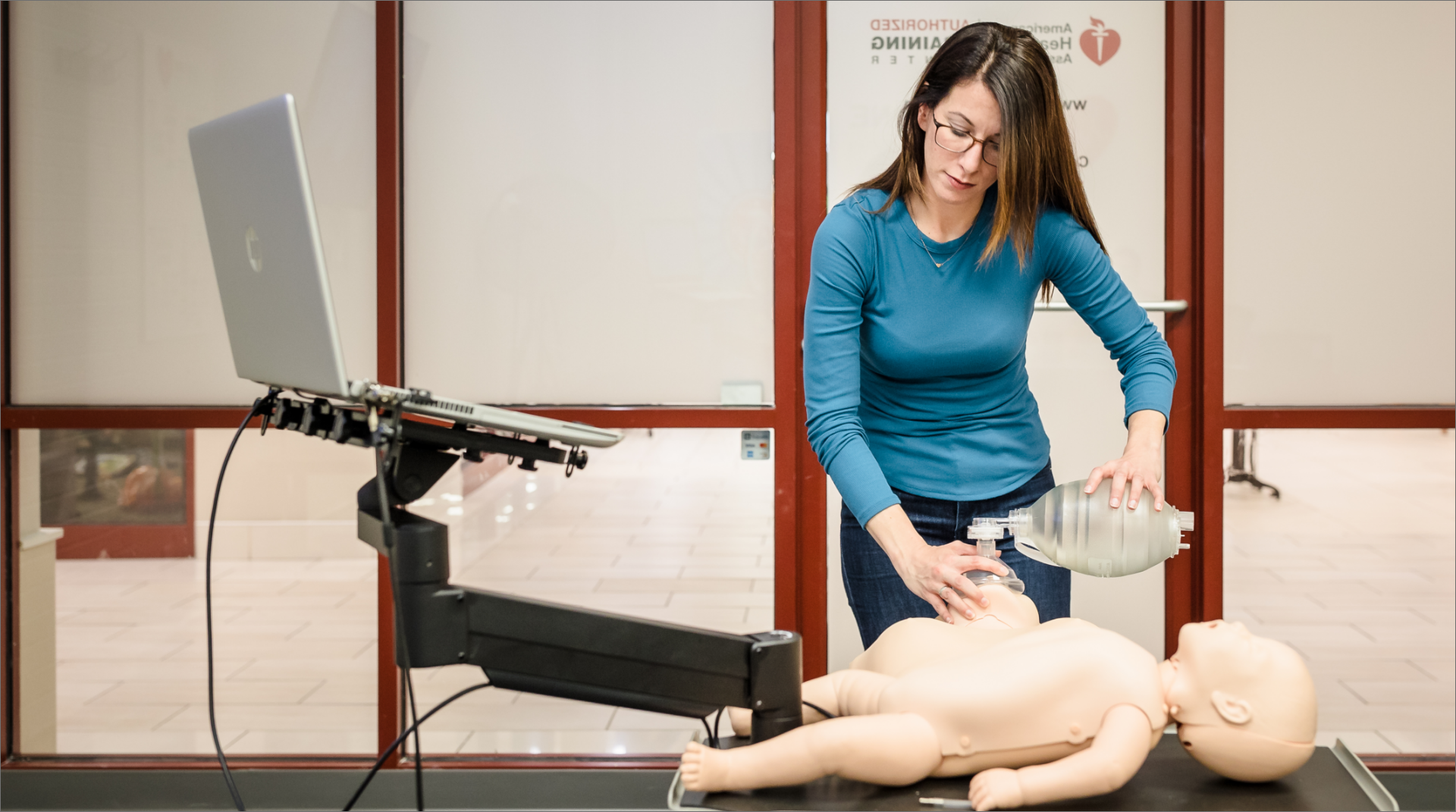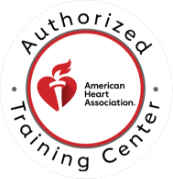

CPR Resource Center
The most comprehensive library of emergency training resources — including videos, articles, downloads, and more.


The most comprehensive library of emergency training resources — including videos, articles, downloads, and more.

For resuscitation providers, educators, CPR instructors, trainers, survivors, advocates and more worldwide passionate about saving lives, CASSummit is the largest and only conference of its kind providing the opportunity to learn from the widest array of resuscitation experts on the latest science, education and implementation across the full chain of survival.
Here’s what’s happening:
Learn more and register here: https://www.citizencprsummit.org/
Recent events have brought increased awareness regarding the need for effective Emergency Action Plans (EAPs), the life saving potential of cardiopulmonary resuscitation (CPR) and the use of automated external defibrillators (AEDs) in the workplace and other environments.
This guide includes specifics related to different aspects of workplace defibrillation programs as well as recommendations with links to resources from respected and recognized organizations and industry partners.
Read more: https://code1web.com/learning-center/cardiac-arrest-in-the-workplace-by-the-numbers/
Bridgid Joseph, DNP, RN, CCS, CEO of ThriveIN LLC, shares why she’s excited to attend the Cardiac Arrest Survival Summit, Nov. 29-Dec. 2 in San Diego. The full chain of survival comes together at the CASSummit to learn, network and get inspired, and Dr. Joseph also speaks specifically to the benefits for nursing-focused attendees.
Watch: https://youtu.be/i2UIj4tJojA?si=0-0PjANHid2JooIv
Time is of the essence…how quickly can you find the AED signs?
Play the game and find the signs!
Find the AED sign in each picture as quickly as you can! When you find it, click on it, and the next picture will appear. Your responses will be timed to see how quickly each AED sign in different environments can be found.
Try it now: https://www.find-the-aed.com/
Emory’s Cardiac Arrest Registry to Enhance Survival (CARES), the only national data collection tool that connects pre-hospital cardiac arrest data with hospital outcomes, will receive $23.85 million in grant funding over the next five years from the Centers for Disease Control and Prevention (CDC).
The CDC CARES Expansion and Modernization Grant, which went into effect Oct. 1, marks a return to public funding for the CARES performance and quality improvement program, which equips communities with crucial data to compare patient populations, interventions, and outcomes related to sudden cardiac arrest.
Read more: https://news.emory.edu/stories/2023/10/hs-cares-cdc-grant/story.html
In honour of World Restart a Heart Day on Monday over 100 university students across the province will facilitate the CPR training needed to respond to a cardiac arrest emergency, including at Hamilton’s McMaster University. The day is a global campaign with the goal of increasing public awareness on cardiac arrest as well as the importance of learning CPR and how to use an automated external defibrillator (AED). From the start of the school year, student organizers at McMaster have facilitated CPR training for over 2,000 students and staff on the campus. The ultimate goal has been set to train an additional 2,500 bystanders across McMaster and the other 11 participating schools. “We hope that by bringing greater attention to the importance of CPR and AEDs on World Restart a Heart Day we can ensure more people are equipped to help save the lives of those experiencing cardiac arrest,” says Bianca Mammarella, Co-Lead of McMaster Cardiovascular and Resuscitation Student Group.
Watch: https://youtu.be/7Q6MK3TTqng?si=RUt23bVu_wSiHRQB
Units allow lifesaving treatment for cardiac events ‘until first responders arrive’
So far, the county has installed 11 AEDs at county parks, with 22 additional units scheduled for parks and recreation areas as supply chains allow. In addition, 21 AEDs will be placed outdoors at schools starting this fall. AEDs are already installed inside many county facilities, schools and recreation centers.
Watch: https://vimeo.com/873702532
The American Heart Association and Laerdal Medical renew public/private alliance to advance lifesaving solutions; aim to be catalyst for improving access to quality emergency care worldwide.
With a shared mission to help save more lives from cardiac arrest, the American Heart Association, the world’s leading voluntary organization dedicated to a world of longer, healthier lives for all, and Laerdal Medical, one of the world leaders in medical simulation and resuscitation training, have co-developed and brought innovative resuscitation quality improvement programs, education and training to health care providers for decades. The organizations’ early collaborative products include the HeartCode® portfolio in the mid-1990s, followed by the CPR Anytime Kit™ and CPR in Schools Training Kit™, debuting in 2004 and 2013, respectively.
Read More: https://newsroom.heart.org/news/leaders-in-resuscitation-science-education-and-technology-commit-to-1-million-more-lives-saved-each-year-by-2030
To save more lives, Quebec will install 900 new automated external defibrillators (AEDs) for use by the population throughout the province.
AEDs, which can restart a heart that has stopped beating by delivering an electric shock, will be installed in public places and available at all times.
“The deployment of defibrillators in the four corners of Quebec is one of the actions we are taking to concretely contribute to meeting the needs of Quebecers and act more quickly to save more lives,” stated the Minister of Health, Christian Dubé.
Read More: https://nationworldnews.com/green-light-for-the-installation-of-900-defibrillators-in-quebec/
Free Hands-Only CPR education through the American Heart Association’s Kids Heart Challenge supports mission critical work to improve the chain of survival.
“As long-term collaborators, this represents a natural evolution of the American Heart Association and the NFL partnership, which has focused on children’s mental and physical well-being through NFL PLAY 60,” explained Nancy Brown, CEO of the American Heart Association. “Meeting children where they are in fun and engaging ways inspires children to get excited about health, including learning Hands-Only CPR. Together we are enhancing health outcomes both at home and beyond.”
Read More: https://newsroom.heart.org/news/national-football-league-commitment-to-nation-of-lifesavers-supports-hands-only-cpr-education-for-youth
Produced in the style of a 1940s public information broadcast, this video plays on British stereotypes. It may be tongue-in-cheek but has a serious message – if you see someone who has collapsed and isn’t breathing, be assertive and start CPR.
Watch: https://youtu.be/Ep1qpNQclrg?si=VtZpNzEXPvIZ8Avy
“It’s part of our Heart Safe Richland initiative, which is a public education campaign to teach hands only CPR and AED use out in the community. As part of that program, we do what’s called Heart Safe campuses where if you have a business, and we come in, we can train your employees.” said Michael Van Beek Battalion, Battalion Fire Chief of Richland Fire and Services. “If at least 70% of your employees are trained in hands only CPR and AED use, we will recognize that business as being a Heart Safe Campus.”
Read More: https://newstalk870.am/ixp/1130/p/richland-fire-to-praise-kadlecs-non-clinical-staff/
While the CPR intervention may prove beneficial, more evidence is needed before it can become a standard of care The Metro chiefs, in response to NAEMSP, rescinded position papers on neuroprotective CPR and pre-hospital transfusion of blood products.
Recently, a document has been circulating claiming that “neuroprotective CPR,” better known as head-up CPR, is the “standard of care” for prehospital resuscitation of cardiac arrest [1]. Leaving aside the unclear providence of this document (it was published anonymously and, while it has the logo of the Metropolitan Fire Chiefs and appeared on the NFPA website, it isn’t clear if this represents the official position of these organizations), there is significant concern with this document.
Read More: https://www.ems1.com/ems-products/cpr-resuscitation/articles/not-so-fast-more-evidence-needed-in-head-up-cpr-ZK2O7yt5eb8jryYm/
AED registries serve as the backbone of many novel solutions developed to facilitate rapid identification of the nearest resuscitation-ready AED in an emergency. AED registries, holding information on location and accessibility, may facilitate AED retrieval by enabling rapid identification of the nearest device. Integration of this data with the 911 system is essential. By doing so, bystanders can be directed to nearby and accessible AEDs by emergency telecommunicators, reducing time to first compressions
and shock.
There are several mechanisms for developing these registries including mobile device applications (apps) such as the PulsePoint Foundation PulsePoint AED that can crowdsource the development and maintenance of AED registries.
They are conducting a contest during Sudden Cardiac Arrest Awareness month.
Read more: https://www.pulsepoint.org/aedcontest
Zombies are everywhere these days and now they are actually dabbling in healthcare! A new PSA from the Heart and Stroke Foundation of Canada shows a horde of zombies saving a woman from cardiac arrest using CPR… and then going back to their zombie-ways. Gillian Pensavalle has more.
See the entire PSA: https://youtu.be/0NGzjFPpuFU?si=voA-g4SZGcoJzBf3
Help Me Find a Course